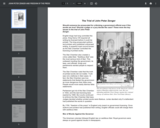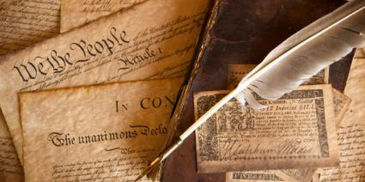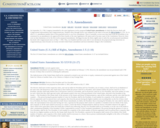
This trial in colonial times helped define freedom of press in America. Access to this resource requires a free educator login.
- Subject:
- History
- Social Science
- Material Type:
- Lesson Plan
- Provider:
- Teach Democracy
- Date Added:
- 05/10/2024

Amendment I: Freedom of religion, speech, and the press; rights of assembly and petition
Congress shall make no law respecting an establishment of religion, or prohibiting the free exercise thereof; or abridging the freedom of speech, or of the press, or the right of the people peaceably to assemble, and to petition the Government for a redress of grievances.

This trial in colonial times helped define freedom of press in America. Access to this resource requires a free educator login.

This webpage includes information about the amendments to the U.S. Constitution.

In United States v. O’Brien (1968), Chief Justice Earl Warren laid out a test for deciding whether the government has unconstitutionally restricted symbolic speech. In general, the First Amendment of the U.S. Constitution protects a person’s right to speak freely. However, the 7-1 majority decision in O'Brien found that there are some instances in which the government can regulate free speech, like burning a draft card during wartime.